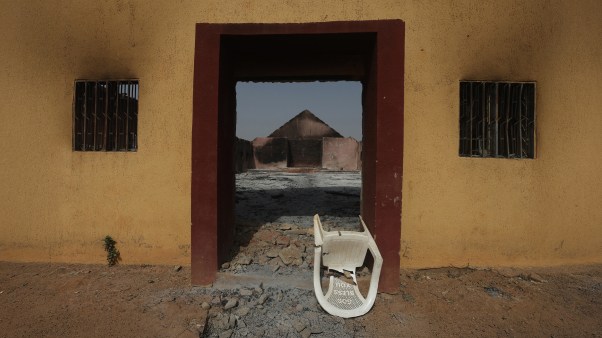Every year churches and missions organizations send out hundreds of short-term missions teams. These short-termers send out support letters, organize fundraisers, plan, pray, and eventually pack their bags—all in preparation to serve God some place other than where they live.
In spite of efforts to prepare for these trips, many groups—and individuals—are still victims of the most common pitfalls of short-term missions.
It's Not about Location, Location, Location
Doug Franklin is the founder and president of LeaderTreks, a ministry committed to developing student leaders. Each year, LeaderTreks' staff leads youth groups and school groups on dozens of short-term mission trips within the United States and overseas.
Franklin attributes many of the pitfalls he has witnessed to a lack of preparation, or an incomplete understanding of the nature of the mission.
"The biggest problem I see is that people put an emphasis on location instead of service," Franklin says. "They get all hyped up about where they're going instead of where they're going to serve. You hear about short-term missions and the first thing you hear is where they're going."
Franklin also believes that too many groups view short-term missions as sightseeing trips.
"The location doesn't matter," Franklin says. "The heart matters."
Don't Show up with Your Own Plan
"If a church plans their own agenda [around] what they want to do when they get there, it's not always in line with the needs of the people group they're going to serve," says Roni Rega, coordinator for TEAMServe, the short-term missions division of The Evangelical Alliance Mission (TEAM), a missionary organization committed to planting churches throughout the world.
"Many teams come in with their own agenda and plans instead of collaborating ahead of time," Rega says. "When you do this, it's not a partnership; it's more about you and not what you can do for God's ministry."
Emphasize the Importance of Building Relationships
"In a poor country like Haiti that has a lot of physical needs, Americans have a real propensity to [adopt an attitude that says] 'I'm going to feed you and help you,'" Rega says. "That approach puts the recipient in a role as a victim when our attitude should suggest that we're interested in building a relationship even though there's a monetary difference between us."
Rega learned this lesson during two years in which she lived in Haiti. During her time there, others wanted to share food with her. For example, sometimes women would bring her avocados.
"At first I felt bad accepting the gifts because I felt like I had so much more than the people who were giving to me," Rega says.
Accepting gifts from those who had less reminded Rega that the physical things we can provide are less valuable than the relationships we can build.
"Missions doesn't have to be about giving out," Rega says. "Instead, we should be asking ourselves, 'Is there a way I can serve together with these people?'"
Preventing Pitfalls Prior to Departure
Pre-trip orientation is essential. Preparing a team for the culture and environment they will encounter is vital for the team's sake and for those they will meet upon arrival.
"We do orientations—training before they go to do overseas service—to prepare them with the right kind of attitude and heart," says Rega.
TEAM's orientation includes sessions on cross-cultural communication and servanthood. The short-termers also read Foreign to Familiar by Sarah A. Lanier—which Rega believes is an excellent book for preparing people to encounter other cultures.
"If you're unfamiliar with the way different cultures do different things, you could go in with an attitude of 'What's wrong with these people?'" says Rega. "It's important to be aware of your own biases and limitations before you go."
Flexibility is Key
Rega acknowledges that even the most concerted efforts to train short-termers will not prepare them for all the potential pitfalls.
"Things do not go as planned. That's pretty common," Rega says. "Whether it's losing supplies, an assignment changing, or anything else that could go differently than planned, these things can affect the emotions of the short-term person."
That's why, during training sessions, TEAM asks their short-termers how they would respond if the ministry they plan to do is changed and they are instead given a different assignment.
"The last guy I debriefed went to Japan to set up computers, and when he got there, the computers hadn't arrived," Rega says. "So he had to shift his mindset and think 'God has me here anyway, so what can I do to support this ministry?' So part of his trip was spent doing things that anyone could have done. He admitted that, in the beginning, this was a bit of a downer for him."
"Americans attach great value to productivity. Task-orientation and accomplishing things is important to us," Rega says. "But we encourage [short-termers] to look for what God is asking them to do while they're there."
Preventing Pitfalls after the Plane Touches Down
The most important moment in a short-term missions trip might come after the trip.
"[Short-Termers] are most likely to embrace a life change immediately after they return from their trip," Franklin says. "Unfortunately, most short-term mission trips have no plan to debrief at the end."
When the team has the chance to debrief, it can help them focus on the most important aspects of the trip—what they learned, what they want to do differently, why missions are important—and it will help prepare the short-termer to share their story with family members and friends.
TEAM gives their short-termers a personal reflection journal to take on their trip, and that journal plays an important role in TEAM's debriefing process. During the debriefing, returning short-termers participate in a one-on-one interview with someone from TEAM, and they are encouraged to communicate the thoughts they jotted down in their journals.
"When you come back, everyone asks, 'How was your trip?' and they just want to hear 'It was good,'" Rega says. "They don't really want to hear all about it. So this helps prepare them to give an abbreviated version."
Is It Worth It?
Short-termers invest a lot of time and money, and oftentimes must raise support, to make a trip possible. Because of this investment of time and money, many short-termers have high expectations for their trip. And when the trip doesn't meet those expectations, or doesn't go according to plans, it can be frustrating for the short-termer.
During the debriefing process, Rega has heard things like, "I thought I'd be a bigger blessing to the people there" or "I don't feel like I did enough." Other people have told her that they felt more like a burden than a blessing to their hosts.
But when short-termers experience hardships and frustrations, Rega says, "They often adopt the perspective that, 'God used it anyway, so it was worth it.'"
Rega makes a point to ask each returning short-termer that very question: Was it worth it?
"So far I always get the answer, 'Yes, it was worth it,'" Rega says. "Whether there were pitfalls along the way, whether or not they accomplished what they thought they were going to accomplish, they find that God was at work."
Tyler Charles is a freelance writer living in Ohio.









